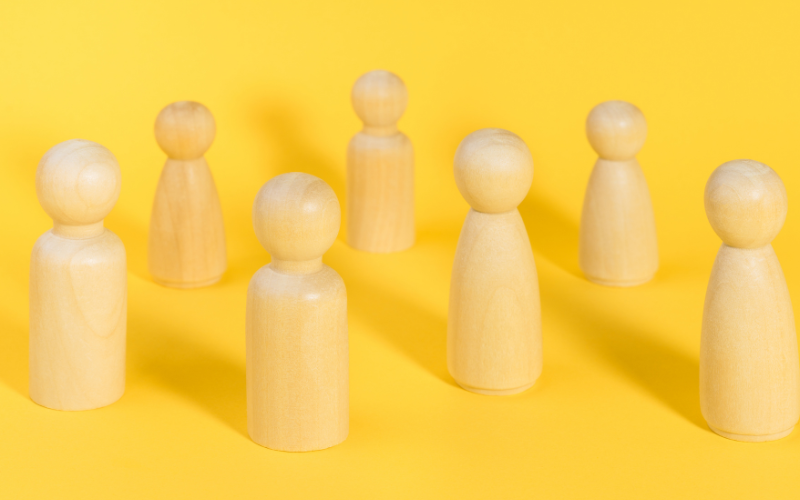Social isolation refers to a lack of social contact and interaction with others. It can be a result of a variety of factors such as geographical location, work, lifestyle, and personal circumstances. In today’s fast-paced and increasingly connected world, this condition has become a growing concern, affecting millions of people globally.
While social isolation can be a temporary experience, it can also develop into a chronic condition that can have significant impacts on mental and physical health. In this article, we will delve into the causes and symptoms of this condition, as well as explore strategies for coping with that.
Causes of Social Isolation
There are many factors that can contribute to this condition, including:
- Geographical location: People living in remote or rural areas may find it difficult to maintain social connections and may feel isolated from the rest of society.
- Work: Long working hours and demanding jobs can leave little time for social interaction, leading to feelings of isolation.
- Lifestyle: Certain lifestyles, such as those of introverts or individuals with social anxiety, can contribute to social isolation.
- Personal circumstances: Life events such as the death of a loved one, divorce, or retirement can result in feelings of isolation.

Symptoms of Social Isolation
Social isolation can manifest in a variety of ways, including:
- Feelings of loneliness and sadness
- Decreased self-esteem and confidence
- Difficulty sleeping
- Changes in appetite
- Reduced energy and motivation
- Difficulty concentrating and making decisions
What are 4 types of isolation?
-
- Emotional isolation: This refers to a lack of emotional connections and support from others.
- Social isolation: This refers to a lack of social connections and interaction with others.
- Physical isolation: This refers to physical separation from others, such as living in a remote area or being in quarantine.
- Cognitive isolation: This refers to a lack of understanding or connection with others, due to differences in beliefs, values, or experiences.

The Impact on Mental and Physical Health
Social isolation has been linked to a range of negative outcomes, including:
- Increased risk of depression and anxiety
- Increased risk of substance abuse
- Increased risk of cognitive decline and dementia
- Increased risk of heart disease and other physical health problems
Coping with Social Isolation
While social isolation can be a challenging experience, there are ways to cope and reduce its impact on mental and physical health. Some strategies for coping with this condition include:
- Building and maintaining social connections: This can be achieved through activities such as volunteering, joining clubs or organizations, and reaching out to friends and family.
- Practicing self-care: This can include activities such as exercise, meditation, and seeking professional help.
- Finding meaning and purpose: Engaging in activities that bring a sense of fulfillment and purpose can help to reduce feelings of isolation and improve overall well-being.

FAQs
Why do I wanna isolate myself?
There can be several reasons why someone may choose to isolate themselves, including:
- Social anxiety: Feeling nervous or uncomfortable in social situations can lead to self-imposed isolation.
- Mental health conditions: Mental health conditions such as depression and anxiety can lead to feelings of hopelessness and a desire to be alone.
- Life events: Life events such as a death of a loved one, divorce, or retirement can result in feelings of loneliness and a desire to withdraw from social situations.
How do you overcome social isolation?
There are several strategies for overcoming this condition, including:
- Building and maintaining social connections: This can be achieved through activities such as volunteering, joining clubs or organizations, and reaching out to friends and family.
- Practicing self-care: This can include activities such as exercise, meditation, and seeking professional help.
- Finding meaning and purpose: Engaging in activities that bring a sense of fulfillment and purpose can help to reduce feelings of isolation and improve overall well-being.
- Seeking support: Talking to friends, family, or a mental health professional can provide a supportive network and help reduce feelings of isolation.
Is social isolation a mental disorder?
It is not considered a mental disorder in and of itself, but it can be a symptom of, or a risk factor for, several mental health conditions such as depression and anxiety. It is also a common experience for those who struggle with social anxiety, agoraphobia, or other mental health conditions.
Conclusion
Social isolation can have a significant impact on both mental and physical health, but it is possible to reduce its effects. Building and maintaining social connections, practicing self-care, and finding meaning and purpose are some of the ways to cope with social isolation. It is important to seek support from friends, family, or professional help if necessary.
It is also important to recognize that social isolation can affect anyone, regardless of age, gender, or background. By understanding the causes and symptoms of social isolation, and implementing strategies to reduce its impact, we can work towards creating a more connected and supportive society.
In conclusion, social isolation is a growing concern that can have negative impacts on mental and physical health. By being aware of its causes and symptoms, and taking steps to address it, we can work towards reducing its impact and promoting overall well-being.




